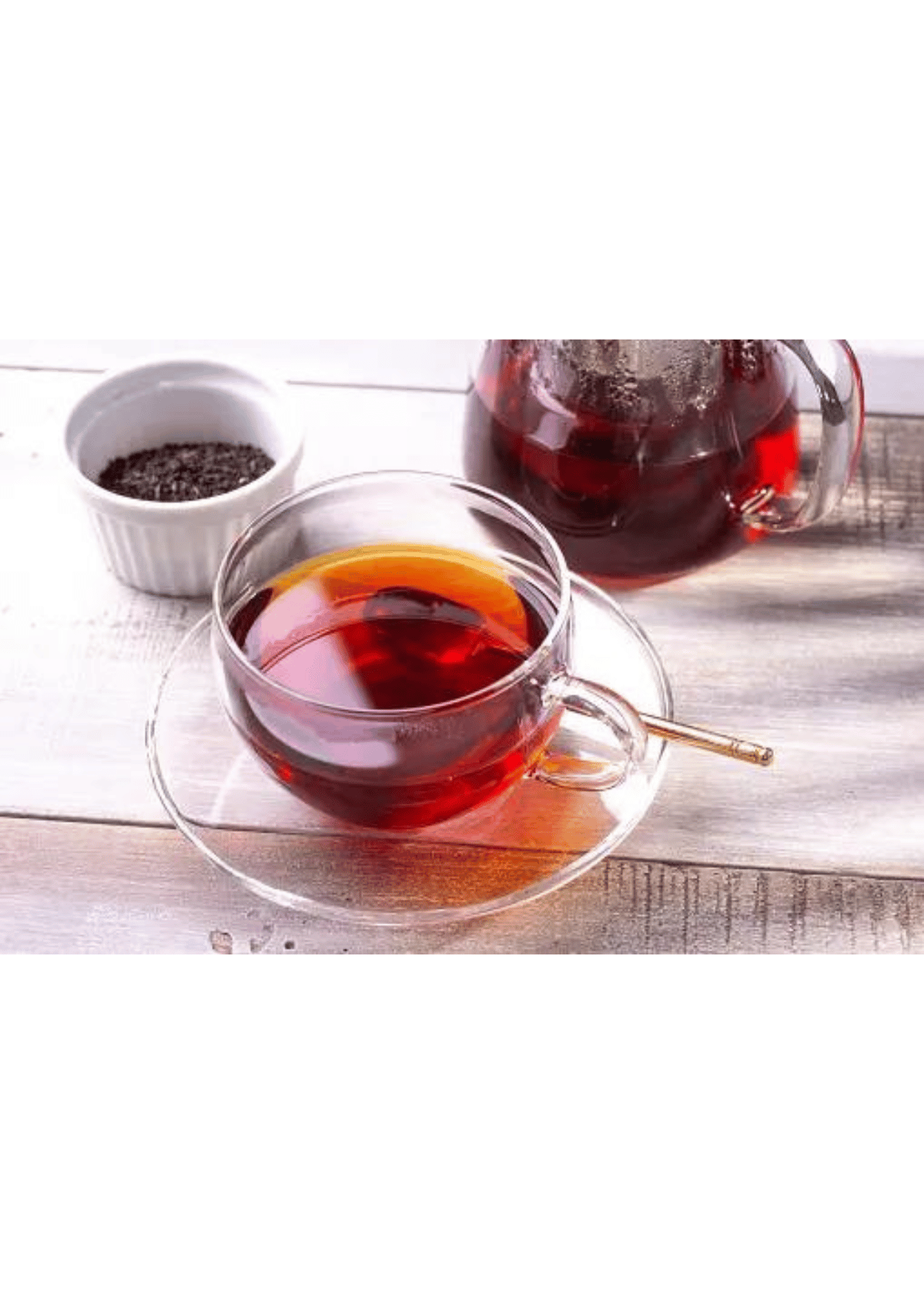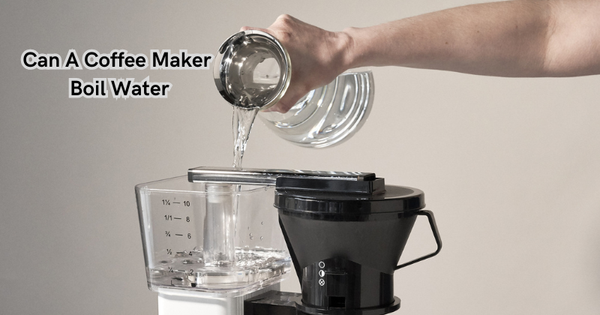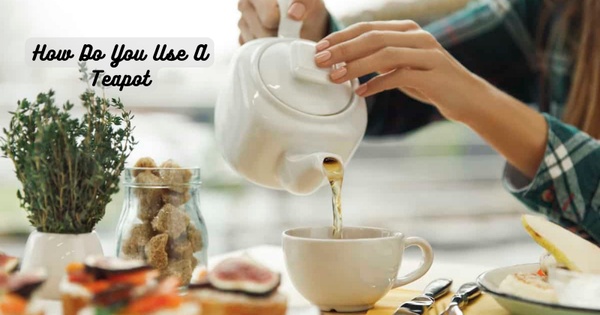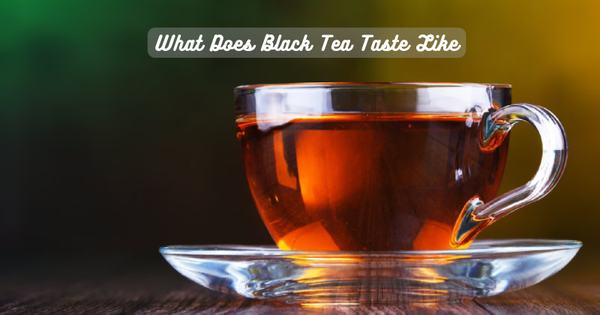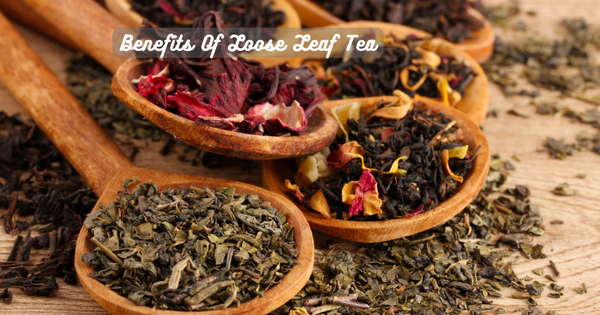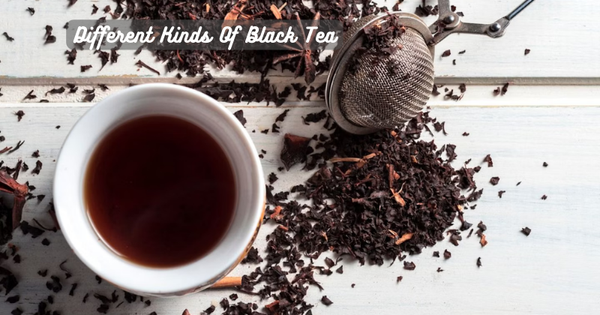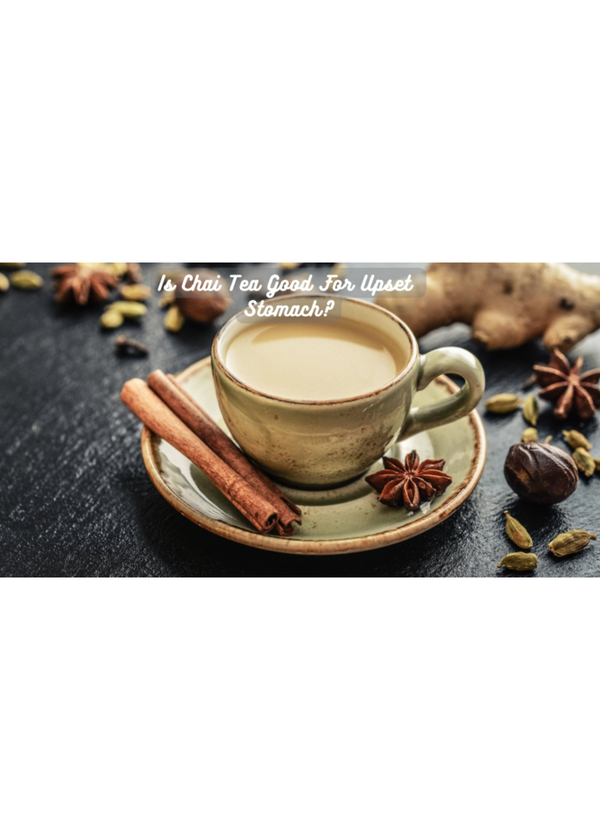Are you looking for high-quality black tea blends for your morning coffee cup?
Enjoy a cup of pure indulgence with a pure malty-flavored blend. It's made from the leaves of a plant called Camellia Sinensis and is known for its rich, full-bodied flavor and deep color. Our selection features popular types such as Assam, Darjeeling, Ceylon, and Earl Grey, which boast unique characteristics - bold, malty taste, floral aroma, and fruity flavor with hints of citrus or smoky aroma.
Discover how to bring out the unique flavors in each type by brewing it just right and falling in love with these special teas! Every sip will tantalize your palate while giving you that much-needed pick-me-up.
Our Selection Criteria
Finding the best malty-flavored tea can be a daunting and time-consuming task. With so many options available, it's easy to feel overwhelmed and unsure of where to start.
You don't want to waste your time and money on subpar black teas that disappoint you with their quality or flavor. It's frustrating to go through trial and error, hoping to stumble upon the perfect cup of tea.
That's why Critics Catch did the hard work for you and created Best Black Tea, a curated list of the top five black teas according to our expert evaluation process. We considered everything from quality and flavor profiles to sourcing practices and customer preferences, so you can trust that these teas are the best.
Please sit back, relax, and let us guide you to the perfect cup of black tea. No more guesswork, just pure enjoyment.
Reasons for Admiration
Hey there, fellow tea lovers! Are you ready for a flavor-packed journey that satisfies your taste buds and brings numerous health benefits to your daily routine? Look no further because we've got something special for you - meet the delightful Assam Black Tea!
Imagine starting your morning with a steaming cup of Assam Black Tea. The refreshing aroma gently wafts through the air, filling your senses with anticipation. With just one sip, you'll be transported to the enchanting tea gardens of Assam, renowned for producing some of the finest black teas in the world.
But this isn't just any ordinary cup of tea; it's a supercharged elixir brimming with immune-boosting properties. That's right, Assam Tea is like a mighty shield that fortifies your body's defenses, helping you combat those pesky illnesses that seem to lurk around every corner.
Did you know that regular consumption of black tea is also associated with a reduced risk of chronic diseases? That's right, this oh-so-flavorful beverage might be your secret weapon against some of life's most challenging battles. It's like having a trusted ally on your side, always ready to lend a helping hand in pursuing a healthier, happier you.
But let's not forget the true star of the show - the taste! Assam Black Tea boasts a full-bodied and flavorful profile that will leave you positively addicted. Its enchanting amber hue, enriched with subtle malty undertones, creates a symphony of flavors that dance upon your palate.
The brew demands your attention and rewards you with pure satisfaction. Trust us: once you experience the magical allure of Assam Black Malty Tea, you'll never settle for anything less.
And because they believe every tea lover deserves a perfect cup of tea, Assam Black Tea takes pride in sourcing only the finest, hand-selected leaves for their Assam Black Tea. Each batch is carefully cultivated and harvested to capture the essence of Assam tea heritage, ensuring every cup you brew is a masterpiece.
Essential Insights
This variety of black tea contains more caffeine than other black teas, making it an excellent choice for those seeking a refreshing pick-me-up to start their day.
But that's not all - Assam black tea is also rich in antioxidants, which can have immune-boosting effects and reduce the risk of chronic diseases. So not only will you feel energized, but you'll also be doing your body a favor by sipping on a delicious cup of Assam tea.
Reasons for Admiration
Are you ready to embark on a tea journey like no other? Introducing the exquisite Darjeeling Black Tea, a sensational blend that will transport your palates to a world of pure bliss!
Imagine savoring a cup of tea delicately infused with the flavorful essence of muscatel grapes, creating a symphony of sweet and fruity notes that dance on your palate. This is the Darjeeling black tea experience—the epitome of elegance, sophistication, and pure indulgence.
Often hailed as the champagne of black tea, Darjeeling leaves are carefully handpicked from the breathtaking fields in the misty Himalayan mountains. This unparalleled terroir imparts a unique character that sets our tea apart from all others. Each sip celebrates nature's finest craftsmanship, a balanced dance of distinctive flavors that will leave you longing for more.
But the beauty of Darjeeling black tea doesn't stop at its irresistible taste. Within each cup lies a treasure trove of antioxidants, working diligently to promote your overall health and well-being. Sip by sip, you'll feel a sense of calm and tranquility, revitalizing your body and mind.
Essential Insights
If you prefer a balanced energy boost and want to prioritize your health, Darjeeling tea could be an excellent fit. This black tea generally has a moderate amount of caffeine, making it a perfect choice for those who want to avoid the jitters that can come with more highly caffeinated drinks.
Plus, Darjeeling tea, like other black teas, is packed with antioxidants that may help support overall health and well-being.
Reasons for Admiration
Sip and savor the flavor of Earl Grey Black Tea! This exquisite blend of black teas, usually from India or Sri Lanka, is flavored with oil extracted from the rind of bergamot oranges - giving it a distinctive citrusy and floral aroma.
Let its boldness mingle with the delicate and aromatic twist of its bergamot essence in your perfect cup—the perfect tea for those who savor their moments with the expertly brewed Earl Grey. Whether you're looking to awaken your senses or gloriously end your day, this remarkable tea has just what it takes to make everything right in the moment.
Essential Insights
Earl Grey tea is often considered the highly rated black tea due to its unique flavor and moderate caffeine content. Unlike other highly caffeinated drinks, Earl Grey tea provides a boost of energy without being overly stimulating, making it an excellent choice for a mid-day pick-me-up.
But that's not all - the bergamot oil used to flavor Earl Grey may also have mood-enhancing effects and be beneficial for digestion. With its balanced flavors and potential health benefits, it's no wonder that Earl Grey holds a special place in the hearts of tea enthusiasts everywhere.
Reasons for Admiration
Hey there, tea lovers! Are you ready for a truly remarkable tea experience? Look no further because we have something that will make your palates tingle and your senses soar—introducing Lapsang Souchong Black Tea – a true gem in tea!
First, let's discuss why Lapsang Souchong Black Tea is sensational. Packed with polyphenols, this tea is a powerhouse of plant compounds with incredible antioxidant and anti-inflammatory properties. So not only will you be sipping on a deliciously smoky cup of tea, but you'll also be doing your body a favor. How amazing is that?
Now, let's dive into the flavor journey that awaits you with every sip of Lapsang Souchong. Picture yourself sitting by a crackling campfire in a pine forest, enveloped by the cozy scent of smoky goodness. That's exactly what this tea offers – a unique flavor you won't find anywhere else. The aroma of pine and campfire dances on your palates, leaving you with a memorable and utterly satisfying experience.
But here's the best part – Lapsang Souchong Black Tea isn't just any tea. Oh no, it's so much more than that. It's a ritual, a moment of bliss in your day, a warm hug in a mug. Whether starting your morning with a rejuvenating sip or unwinding after a long day, this tea is here to make every moment count.
Essential Insights
Lapsang Souchong has a moderate amount of caffeine and contains polyphenols, which are plant compounds with potential health benefits such as antioxidant and anti-inflammatory properties.
Lapsang Souchong is known for its distinct smoky flavor from being dried over pinewood fires. Sipping on a cup of this delicious tea might satisfy your taste buds and boost your health.
You'll adore Ceylon (Sri Lanka) black tea if you love black tea. With its bright and brisk flavor, this superb blend is the perfect way to treat yourself at the end of your day. Enjoy a unique sip - light citrusy and floral notes make this tea stand out from the average cup. It's not just delicious either - as a source of antioxidants, it can help you stay healthy and supported overall.
Waking up or winding down, Ceylon (Sri Lanka) black tea has all the benefits of black tea in an exquisite brew you'll never forget. Try it and see why it's known as one of the world's most beloved teas! So don't wait—get your perfect cup of Ceylon black tea today!
Essential Insights
Ceylon tea contains moderate caffeine to give you a gentle pick-me-up and provides essential antioxidants to support your overall health. And let's not forget about the delicious flavor - Ceylon tea is known for its richness and depth of flavor.
So whether you're sipping it in the morning or afternoon, Ceylon tea is an excellent option for any tea lover looking for a healthy and tasty brew.
Buyer's Guide
Comprehensive Buyer's Guide: A Comparison of the Top Five Black Teas
Welcome to our comprehensive buyer's guide for black tea. In this guide, we will compare and contrast the top five black teas: Assam Black Tea, Darjeeling Black Tea, Earl Grey Black Tea, Lapsang Souchong Black Tea, and Ceylon Black Tea. We will describe each tea's flavor profile, aroma, and instructions. Additionally, we will discuss the origins and distinctive features of each tea type, highlighting their unique characteristics and regional variations. Finally, we recommend the best brewing methods, ideal serving temperatures, and potential food pairings for each tea. Let's dive in!
- Assam Black Tea:
- Origin: Assam, India.
- Flavor Profile: Full-bodied, malty, and strong, with a robust and earthy taste.
- Aroma: Strong, rich, and often described as having a caramel-like aroma.
- Brewing Instructions: Steep 1-2 teaspoons of Assam black tea in 8 ounces of boiling water for 3-5 minutes. Add milk and sugar as desired.
- Best Brewing Method: Use a teapot or a tea infuser to allow the tea leaves to unfold fully.
- Ideal Serving Temperature: 208°F (98°C) - 212°F (100°C).
- Food Pairings: This goes well with breakfast foods, pastries, and spicy dishes.
- Darjeeling Black Tea:
- Origin: Darjeeling, India.
- Flavor Profile: Light-bodied with a bright and floral taste, often described as having muscatel notes.
- Aroma: Fragrant, floral, and sometimes compared to Muscat grapes.
- Brewing Instructions: Steep one teaspoon of Darjeeling black tea in 8 ounces of water heated to 195°F (90°C) for 2-3 minutes.
- Best Brewing Method: Use a tea infuser or a teapot with a strainer to brew loose-leaf Darjeeling tea properly.
- Ideal Serving Temperature: 185°F (85°C) - 195°F (90°C).
- Food Pairings: Complements light meals, scones, and delicate desserts.
- Earl Grey Black Tea:
- Origin: Blend of black teas with bergamot flavoring, named after Charles Grey, the 2nd Earl Grey of England.
- Flavor Profile: Citrusy and aromatic, with a distinct bergamot flavor.
- Aroma: Bold, floral, and citrusy due to the bergamot oil infusion.
- Brewing Instructions: Steep one teaspoon of Earl Grey black tea in 8 ounces of water heated to 205°F (96°C) for 3-5 minutes.
- Best Brewing Method: Use a teapot or a steeping basket to allow the tea leaves to unfurl.
- Ideal Serving Temperature: 205°F (96°C) - 212°F (100°C).
- Food Pairings: This goes well with lemon-infused desserts, citrusy pastries, and creamy desserts.
- Lapsang Souchong Black Tea:
- Origin: Fujian Province, China.
- Flavor Profile: Smoky, bold, robust, distinctive pine and campfire-like taste.
- Aroma: Uniquely smoky, reminiscent of pine forests and campfires.
- Brewing Instructions: Steep one teaspoon of Lapsang Souchong black tea in 8 ounces of boiling water for 3-5 minutes.
- Best Brewing Method: Use a teapot or a tea infuser to allow the tea to infuse fully.
- Ideal Serving Temperature: 200°F (93°C) - 212°F (100°C).
- Food Pairings: Pairs excellently with smoked meats, cheeses, and chocolate desserts.
- Ceylon Black Tea:
- Origin: Sri Lanka (formerly known as Ceylon).
- Flavor Profile: Medium-bodied with a balanced and bright taste, often described as having citrusy notes.
- Aroma: Refreshing, citrusy, and sometimes compared to lemons or orange blossoms.
- Brewing Instructions: Steep one teaspoon of Ceylon black tea in 8 ounces of water heated to 195°F (90°C) for 3-5 minutes.
- Best Brewing Method: Use a tea infuser or a teapot with a strainer for loose Ceylon tea leaves.
- Ideal Serving Temperature: 185°F (85°C) - 195°F (90°C).
- Food Pairings: Complements spicy foods, hearty stews, and citrus-infused desserts.
Conclusion:
By comparing and contrasting the top five black teas (Assam, Darjeeling, Earl Grey, Lapsang Souchong, and Ceylon), we have detailed descriptions of their flavor profiles, aroma, brewing instructions, origins, and unique characteristics. Remember to choose the tea that aligns with your taste preferences and desired experiences. Enjoy exploring the world of black tea and savor the distinctive flavors each one offers.
FAQ Guide: Everything you Need to Know about Best Black-Tea
1.) What is black tea, and how is it different from other types of tea?
Black tea, also known as "red tea" in some countries, is among the most popular and widely consumed tea varieties globally. Black tea is made from the leaves of the Camellia sinensis plant, which are oxidized and then fired or steamed to produce a dark brownish-black leaf.
The black tea oxidation process sets it apart from other teas, which means it has a more robust flavor than green or white teas. In contrast to these lighter varieties, black tea boasts a bolder color when brewed - often a reddish-brown hue due to its tannin content. Black tea also contains higher levels of caffeine than green or white tea.
Black teas are categorized by region: Darjeeling in India, Assam in Bangladesh, Ceylon (Sri Lanka), Kenya (Kenyan Black Teas), China (Keemun), Yunnan province, and Fujian province. All variations offer unique flavors depending on their origin. For example, Assam black teas typically have a malty flavor, while Chinese Keemuns provide hints of cocoa or raisins when brewed properly!
2.) What are the health benefits of black tea?
This tea offers a range of potential health benefits, making it an excellent beverage choice. It contains powerful antioxidants, including catechins and theaflavins, which can boost your immune system, prevent cell damage, and reduce inflammation. Regular black tea consumption has been linked to improved heart health.
Studies have shown that drinking black tea regularly reduces LDL ("bad") cholesterol levels, lowers blood pressure, and increases HDL ("good") cholesterol levels. These combined factors reduce the risk of stroke or other cardiovascular diseases.
Additionally, drinking black tea regularly promotes healthy digestion due to its polyphenols, which have beneficial effects on gut microbiota composition over time. Regularly incorporating black tea into your diet can help contribute to overall wellness in many ways.
3.) What are the different types of black tea, and how do they differ in flavor?
Black tea is one of the most popular types of tea, enjoyed for its robust flavor and stimulating effects. There are several varieties of black tea, each with its distinct characteristics and flavor profiles.
First up is Assam Black Tea, a full-bodied brew originating from India's Assam region. It has a rich, malty flavor, often accompanied by chocolate or caramel notes. Assam tea typically contains higher levels of caffeine than other teas, so it's a great choice if you need an energizing boost in the morning!
Ceylon Tea is another favorite variety from Sri Lanka (formerly Ceylon). This flavorful blend features notes of citrus and spice - often described as having a light smoky finish on the palate. Ceylon Tea has low tannin content, which makes for an easy drinking cup that won't leave your mouth feeling dry afterward.
Darjeeling Tea takes its name from India's Darjeeling district, where it originates. Known as the 'Champagne' among teas, it has delicate but complex flavors reminiscent of muscatel wine with floral undertones and hints of almond or pine nut taste towards the end sip! This fine-grade quality tea should be consistently brewed using cooler water temperature so all its natural fragrances can be appropriately released during infusion.
Finally, there's Earl Grey – undoubtedly one of the most popular varieties today! Named after Charles Grey, who was the 2nd Earl Grey in 19th century England - this aromatic blend boasts a refreshing bergamot orange aroma with subtle notes of floral flavors like lavender or jasmine petals (depending on whole leaf vs bagged versions). It's delicious served as a hot cuppa or over ice - this classic recipe never fails to delight!
When searching for your perfect cup of black tea, pick based on individual preferences. Every style offers unique qualities depending on what kind of sensory experience you're looking for at any time!
4.) How do I brew the perfect cup of black tea?
To make a great cup of black tea, follow these general brewing guidelines:
- Use one teaspoon of loose-leaf black tea (or one tea bag) per eight-ounce cup of water.
- Heat water temperature to just below boiling point, around 200-212°F (93-100°C).
- Steep the tea for 3-5 minutes to achieve a flavorsome infusion, but feel free to adjust the steeping time based on your taste preference.
- Remove the tea leaves or tea bag to prevent over-extraction.
Brewing the perfect cup of black tea is all about finding your ideal balance between flavor and strength. You'll want to use one teaspoon of loose-leaf black tea (or one tea bag) per eight-ounce cup of water. After preparing your favorite infusion vessel, heat the water until it's below boiling point - at around 200-212°F (93-100°C).
Once boiled, add in the leaves or bag and brew for 3-5 minutes to achieve a flavorsome infusion. Of course, depending on personal taste preference, feel free to adjust the steeping time as needed. As with any brewed beverage, remove the tea leaves or teabag once done to prevent over-extraction and potentially off flavors/bitter notes.
When making a good cup of black tea, you can also take other steps towards creating a more enjoyable experience, such as adding milk and sugar if desired or even using two teaspoons in a cup if you like more potent flavorings.
Additionally, some folks may prefer reusing their leaves or bags in multiple infusions, resulting in an even lighter yet still flavorful drink - but this will depend entirely on individual preference! Following these general brewing guidelines should help set you on the path toward achieving that perfect cup every time!
5.) Are black teas higher in caffeine compared to other teas?
Black teas are indeed higher in caffeine compared to other types of tea. Specifically, it contains more caffeine than green, white, or oolong teas.
How much caffeine do black teas have? On average, an eight-ounce black tea contains 40-70 milligrams of caffeine. This is roughly half the amount found in a standard cup (eight ounces) of regular coffee, which averages around 95 milligrams of caffeine. Still, though, even with only half the typical amount in coffee - that's still quite a lot when consumed throughout the day!
It's important to note that this range doesn't account for all black teas out there; some varieties are much lower than 40 milligrams per cup, while others may be considerably higher than 70 milligrams per cup - mainly if they were brewed for more extended periods and with hotter water temperature. Suppose you're looking to keep track of your daily caffeination habit. It's best practice to look up exact nutritional information based on any brand or blend before consuming them regularly!
6.) Is black tea Loose-leaf in a healthy lifestyle and weight management?
Absolutely! These teas can be a fantastic choice for healthy lifestyle and weight management. The main reason is its low calories, sugar, and other additives. A cup of black tea contains only two to three calories with no added sugar - making it the perfect beverage for those watching their waistline!
Beyond its natural benefits, studies have suggested that drinking black tea may even help you manage your weight in the long term. Research indicates that the flavonoids in black teas have been associated with fat oxidation or burning fat instead of storing it as energy. This suggests incorporating small amounts into your daily routine can be beneficial for maintaining a healthy body weight over time.
However, adding excessive amounts of cream, syrups, or other flavorings to your cup should also be avoided when trying to lose weight – this may quickly negate any potential health benefits. Stick to one teaspoonful of certified organic honey or fresh herb such as mint instead if you want a bit more flavor while still keeping things on the healthier side!
7.) Is there any cultural significance associated with black tea?
Black teas have deep cultural significance in many countries. For example:
- In Britain, black teas are essential to their daily life and are often enjoyed with milk and sugar.
- Tea ceremonies using black teas, such as Gongfu tea in China or the Japanese tea ceremony, hold cultural and historical significance.
- In India, Chai (black tea with milk and spices) plays a crucial role in social gatherings and is known for its aromatic and flavorful profile.
Black teas are essential in many cultures worldwide for their flavor and historical significance. In Britain, black tea is part of their daily life and is often served with milk and sugar.
Tea ceremonies honoring black tea are integral to Chinese culture — Gongfu tea being a notable example— and Japanese culture, where the Japanese tea ceremony is essential. Meanwhile, India is renowned for its Chai (black tea with milk and spices), which is necessary in social gatherings due to its flavorful aroma.
These examples demonstrate how different regions around the world have embraced black tea. It provides a delicious, warm beverage full of antioxidants, traditions, and customs passed down from generation to generation over centuries!
8.) What is the difference between English breakfast tea and breakfast tea?
English breakfast tea and breakfast tea are essentially the same; tradition and naming are the only differences. "English breakfast tea" is commonly used in the UK, while "breakfast tea" is more widely used worldwide. Both are robust black teas that provide a rich and satisfying flavor profile.
9.) Is it safe to consume black tea during pregnancy?
It is generally safe to consume black tea during pregnancy; however, it's essential to be mindful of caffeine consumption from various sources. Although many studies suggest moderate caffeine intake (less than 200 mg per day) is safe for pregnant women, it's best to consult your healthcare provider regarding your specific situation, as everybody is different.
Black teas contain less caffeine than coffee and caffeinated beverages (25-110 mg per 8 ounces). A cup of black tea can provide some beneficial health effects, including relief in fatigue and tiredness due to its natural antioxidants and minerals such as iron and potassium. However, remember that too much caffeine can increase the chances of birth complications such as low birth weight or preterm labor. Therefore, it's advisable to stick to one or two cups daily when expecting a baby.
Also, remember that some herbal teas are unsuitable for pregnant women due to their potential effects on hormones, which could harm the baby's development if consumed excessively. Women should avoid drinking herbal teas made with mustard seed, juniper berry oil, hibiscus flower extract, and oregano oil during pregnancy unless advised by their doctor or midwife after evaluating the individual benefits against the risks associated with each ingredient separately.
Overall, there are excellent reasons why you should enjoy a cup of black tea. At the same time, pregnant - just like any other food/beverage you consume, be sure to discuss this with your healthcare provider before making any decisions so they can assist you in finding what works best for you during this unique journey!
10.) What are some reputable sources to learn more prominent about black tea?
To further expand your knowledge of black teas, you can refer to these reliable sources:
- Tea Association of the USA (www.teausa.com)
- The Camellia Sinensis Tea House (www.camellia-sinensis.com)
- Harvard School of Public Health (www.hsph.harvard.edu)
- The International Journal of Preventive Medicine (www.ncbi.nlm.nih.gov/pmc/journals/1291/)
11.) Does drinking too much black tea have adverse side effects?
Yes, drinking too much black tea can have adverse side effects. Generally speaking, consuming more than four cups a day may increase the risk of specific health issues. In particular, over-consumption of black tea has been linked to an increased risk for osteoporosis and disrupted gut bacteria.
Studies have found that when consumed in higher doses (more than 4 cups a day), certain compounds in black teas, known as polyphenols and tannins, can reduce calcium absorption by your body, affecting bone density over time. Furthermore, tannins also appear to alter the composition of the gut microbiome, which affects normal digestive processes and overall long-term health maintenance.
It is important to note that moderate consumption of black teas does not present such risks and may even bring about some beneficial outcomes associated with improved energy levels, better cognitive function, and minimized stress levels due to its concentration of antioxidants like catechins - molecules with potent anti-inflammatory properties which help protect against cell damage caused by oxidative stress from environmental chemicals or radiation exposure.
12.) What is loose-leaf black tea, and why is it significant in the tea industry?
Loose-leaf teas are essentially whole or partially broken tea leaves not packed into tea bags. The leaves are often larger and more intact than tea in tea bags, often machine-cut into smaller pieces or dust. Loose-leaf black teas are significant in the tea industry because they offer several advantages.
First, loose-leaf tea typically has better flavor and aroma due to the leaves' more prominent size and intact nature. This allows the full flavor profiles and natural oils to be released during steeping, resulting in a more enjoyable tea experience.
Additionally, loose-leaf black tea offers more versatility in brewing methods, allowing tea drinkers to customize the strength, steeping time, and flavor to suit their preferences.
13.) What is the most popular black tea in the world?
Earl Grey tea is now regarded as the best black tea type. The tea is sometimes made using milk or sugar. Earl Grey tea is usually consumed at breakfast and after lunch as a healthier alternative to regular coffee.
Which black tea is the Best for you?
It can be concluded that, unlike most tea, Assam Black Tea is an excellent choice for its flavor profile, caffeine content, and potential health benefits after exploring the various sweet flavors, origins, and characteristics of black tea.
Everyone's tastes and preferences are unique, so it's essential to consider personal needs when selecting. Assam Tea is worth trying to experience a high-quality cup of tea.
For most tea drinkers seeking a more delicate flavor or milder energy boost, Ceylon and Darjeeling teas are great alternatives. Ultimately, the perfect tea experience awaits – explore Assam Tea's exotic aromas and delightful flavors today!
Don't forget to tap the button to check the best prices for the best black teas on Amazon today.

